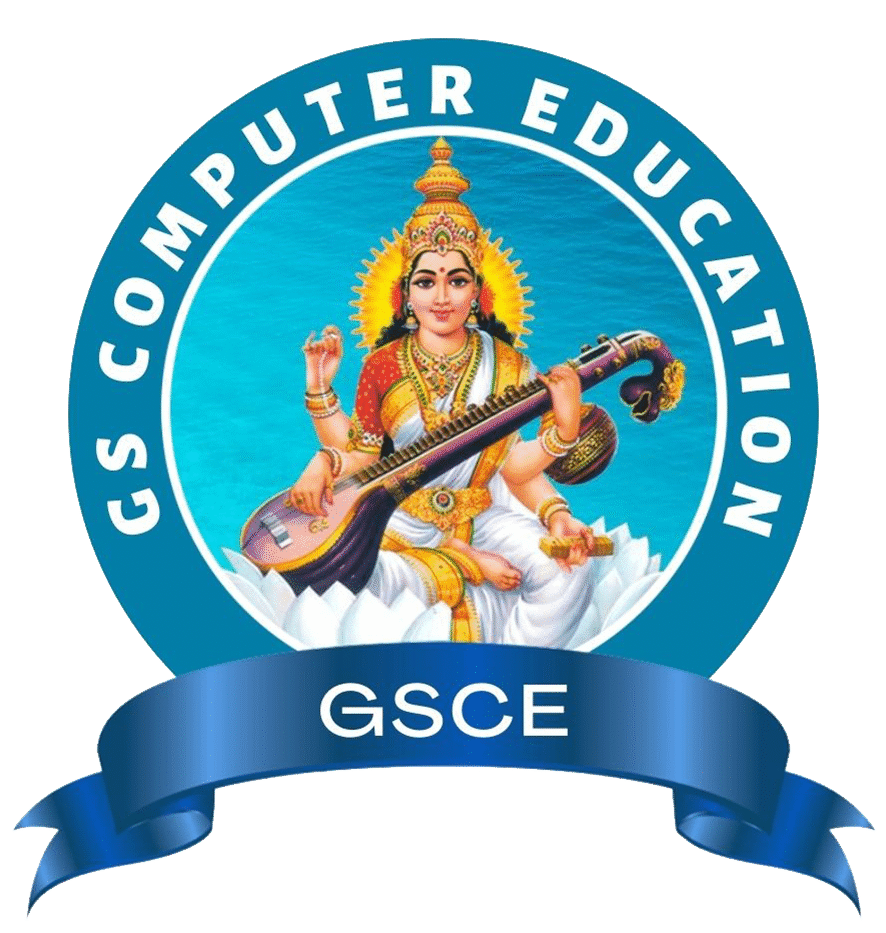Advanced Computer Course in Ber Sarai
In today’s rapidly evolving digital world, acquiring advanced computer skills is not just a preference but a necessity. Ber Sarai, a growing educational hub in Delhi, is becoming a prominent location for students and professionals seeking advanced computer courses. GSCE, a trusted name in the field of IT education, offers a comprehensive range of programs that cater to learners of all levels. The Advanced Computer Course in Ber Sarai by GSCE is designed to equip individuals with in-demand technical knowledge, practical software training, and hands-on experience in real-world applications.
The curriculum covers topics such as Advanced Excel, database management, Tally ERP, graphic designing, web development, programming languages (Python, Java, C++), and more. These modules not only enhance one’s technical knowledge but also prepare candidates for employment in top-tier companies. The course structure includes project work, live assignments, and case studies that simulate actual work environments. With flexible batch timings and experienced trainers, GSCE ensures every student receives personalized attention and professional grooming to meet industry standards.
Job-Oriented Computer Institute in Ber Sarai
For students and job seekers looking to secure their place in the competitive IT job market, choosing a job-oriented computer course is crucial. GSCE in Ber Sarai has emerged as a leading institute offering industry-focused and career-driven programs. These courses are tailored to align with current market trends and are designed to make learners job-ready from day one. By focusing on both foundational and specialized skills, the curriculum ensures a holistic development of technical and soft skills.
From basic computer literacy to advanced software tools, each module integrates practical applications and certifications that boost employability. Whether you’re interested in becoming a software developer, data analyst, digital marketer, or accounting professional, GSCE provides a pathway to a rewarding career. Internship assistance, resume building sessions, and mock interviews further strengthen the employability quotient of students. This job-oriented training model has helped hundreds of learners in Ber Sarai achieve their career goals effectively.
Best Institute for Advanced Computer Training Ber Sarai
Finding the best institute for advanced computer training can be a daunting task. However, GSCE in Ber Sarai simplifies this decision by offering quality education backed by experienced trainers and a job-centric curriculum. The institute has built a reputation for excellence through a combination of updated course content, hands-on learning, and career support services. GSCE emphasizes not just teaching but mentoring students towards a successful IT career.
Advanced computer training at GSCE covers everything from high-level programming to data management and visualization tools. Students gain expertise in platforms like SQL, Power BI, Adobe Suite, and more. The training also includes real-world projects, case studies, and scenario-based learning. The structured modules cater to students, professionals, and entrepreneurs aiming to improve their technological proficiency. Flexible learning modes, including weekend classes and online options, add to the accessibility of these courses.
Professional Computer Classes in Ber Sarai
If you’re looking for professional computer classes in Ber Sarai, GSCE is your go-to destination. These classes are ideal for students, working professionals, entrepreneurs, and homemakers who want to upgrade their digital skillset. The professional courses cover a wide range of subjects including Microsoft Office, internet tools, email management, document formatting, software installation, and troubleshooting. More advanced modules include cybersecurity basics, networking, and programming essentials.
Each class is designed to deliver value with a focus on industry-relevant knowledge and practical implementation. GSCE follows a hands-on approach with real-time exercises and assignments that make learning interactive and effective. Professionalism, punctuality, and performance are key values instilled during the training. Students also get access to mentoring sessions, career counseling, and workshops on the latest trends in technology. These classes empower learners to handle real office environments and freelance assignments confidently.
Advanced Excel and Software Training in Ber Sarai
Mastering tools like Microsoft Excel and other essential software is a game-changer in today’s competitive job market. GSCE offers specialized Advanced Excel and Software Training in Ber Sarai for students and working professionals. The Advanced Excel module focuses on topics like complex formulas, pivot tables, macros, data validation, and financial modeling. This course is essential for careers in finance, HR, data analysis, and administration.
Alongside Excel, students also get trained in software like Tally ERP for accounting, Photoshop and CorelDRAW for graphic design, and HTML/CSS for web development. These software training modules are practical, hands-on, and aligned with current industry standards. Certification from GSCE adds value to the resume and opens doors to multiple job roles across various sectors. Regular assessments, projects, and doubt-clearing sessions ensure continuous learning and improvement.
Diploma in Advanced Computer Application Ber Sarai
A Diploma in Advanced Computer Application (DACA) is an extensive program that prepares individuals for a wide range of IT and administrative careers. GSCE in Ber Sarai offers a well-structured DACA course that includes in-depth training in various domains such as MS Office, internet applications, database management, programming languages, graphic designing, and financial software.
This diploma course is ideal for students who have completed 10th or 12th grade and wish to pursue a career in the digital world. The duration typically ranges from 6 months to 1 year depending on the learning pace. Practical training, live projects, and continuous evaluation make the program comprehensive and effective. GSCE also provides placement assistance, personality development sessions, and mock interviews as part of the diploma.
By enrolling in this course, students not only gain technical skills but also develop critical thinking, communication, and presentation abilities. The DACA certification from GSCE is recognized across industries and enhances the employability of learners in both public and private sectors. Whether you aim to work as a computer operator, software assistant, web developer, or data entry specialist, this diploma offers a strong foundation to kickstart your career in the tech world.

